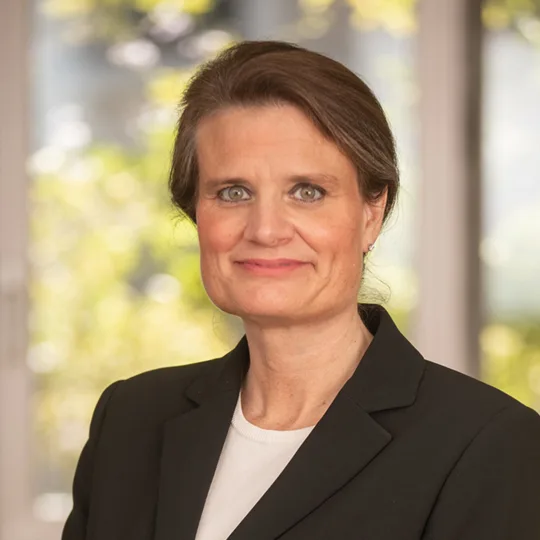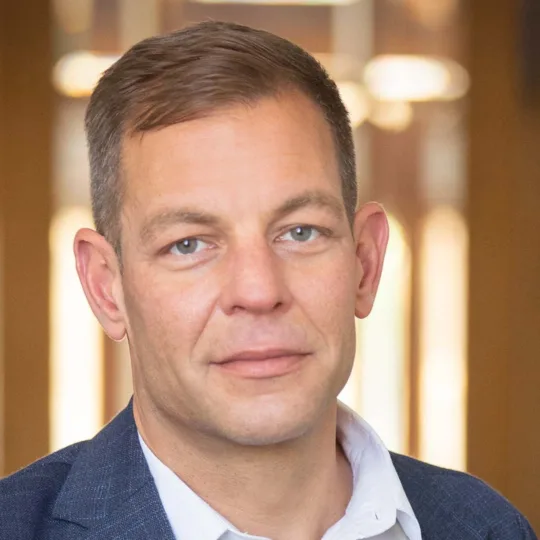Pascal Gygax, the psycholinguist aiming to demasculinise society through language
For the past twenty years, the psycholinguist Pascal Gygax has studied the links between language and gender representations. He has shown how the predominance of the grammatical masculine form in languages influences, consciously or not, our way of seeing the world. In November 2024, he was awarded the Marcel Benoist Swiss Science Prize for his research.
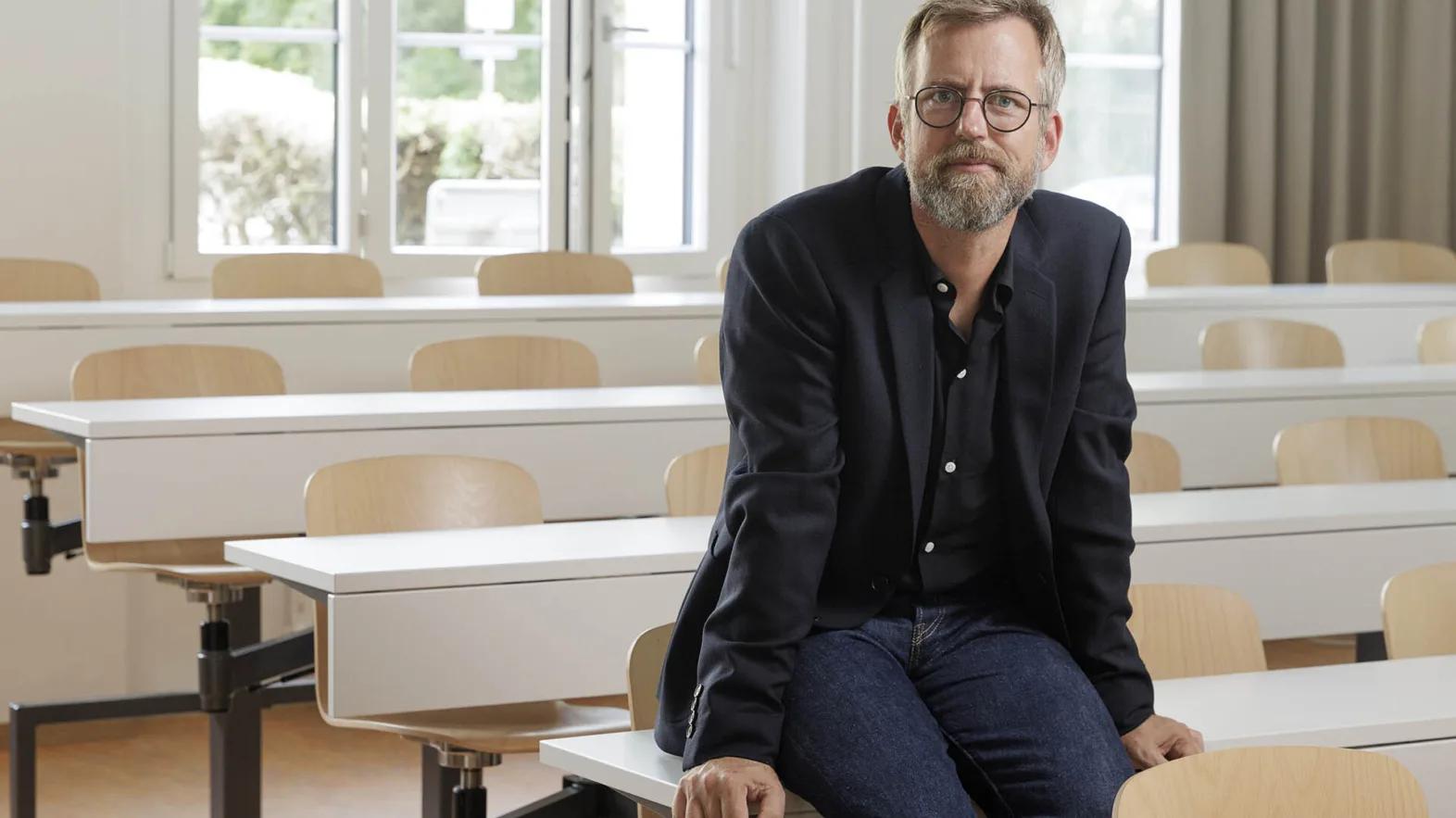
When we read the phrase “Doctors ask students to wash their hands” in French, we immediately think of men in white coats demanding a gesture of hygiene from their male audience, as in French, "doctors" and "students" are both written in the grammatical masculine form. The interesting thing is that the wording (i.e., masculine grammatical form in French) would be the same even if the group of doctors in question included one or several women, and there was a single male student in an otherwise homogeneous group of female students. According to Pascal Gygax, this interpretation of the masculine grammatical form, said to be “generic”, to refer to all gender identities can be explained by the way our brain works, as several neuroscience studies have shown. The French language – and others – through its obvious masculinisation, contributes to entrenching mechanisms which allow men to dominate the world, women included.
“Language influences the way we see the world.”
Gygax studies all show, “that when we see a masculine term, even if it can theoretically be understood as ‘generic’ – in other words, it describes a group in which there may be women as well, as in the example above with the doctors – we more easily think of men, i.e. in the ‘specific’ sense of the word (masculine=man).” As certain recent studies measuring the brain’s electrical activity have shown, the brain consumes more energy when it tries to include a “woman” in “doctors” in the masculine grammatical form.
“Our brain finds it difficult to match the second part with the first, because the word ‘woman’ is not immediately associated with ‘doctors.”
When language places men at the centre
According to Pascal Gygax, the idea that the masculine form can be used to represent a neutral value is incompatible with the way our brain works. This pattern of brain activation becomes established in very early childhood, between the ages of 3 and 5, and is subsequently reinforced during the first years at school: “Formally, we teach the rule ‘masculine=man’ long before we explain that the masculine can also be used in the generic sense,” he says.
This is compounded by other expressions which reinforce the pre-eminence of the masculine over the feminine. Firstly, the order of citation, which very often sees the man mentioned first, as in the expression “husband and wife”, or “Adam and Eve”. Or the generic agreement in the French language, whereby a group of nouns of several genders takes the masculine form: “les étudiantes et étudiants sont formés à la médecine” (female students and male students are trained in medicine). Such an androcentric language, which places men at the centre or above everything else, totally shapes the way we see society. With multiple consequences.
“This androcentric language, which places men at the centre or above everything else, totally shapes the way we see society.”
Firstly, it plays a role in rendering an entire section of society invisible, not only women, but anyone who does not identify with the word “man”. Secondly, androcentric language has a major impact on how children imagine their future career options, explains Pascal Gygax. This is compounded by another very powerful issue: gender stereotypes. Certain professions are spontaneously associated more with women or more with men. Like nurses (women) and surgeons (men).
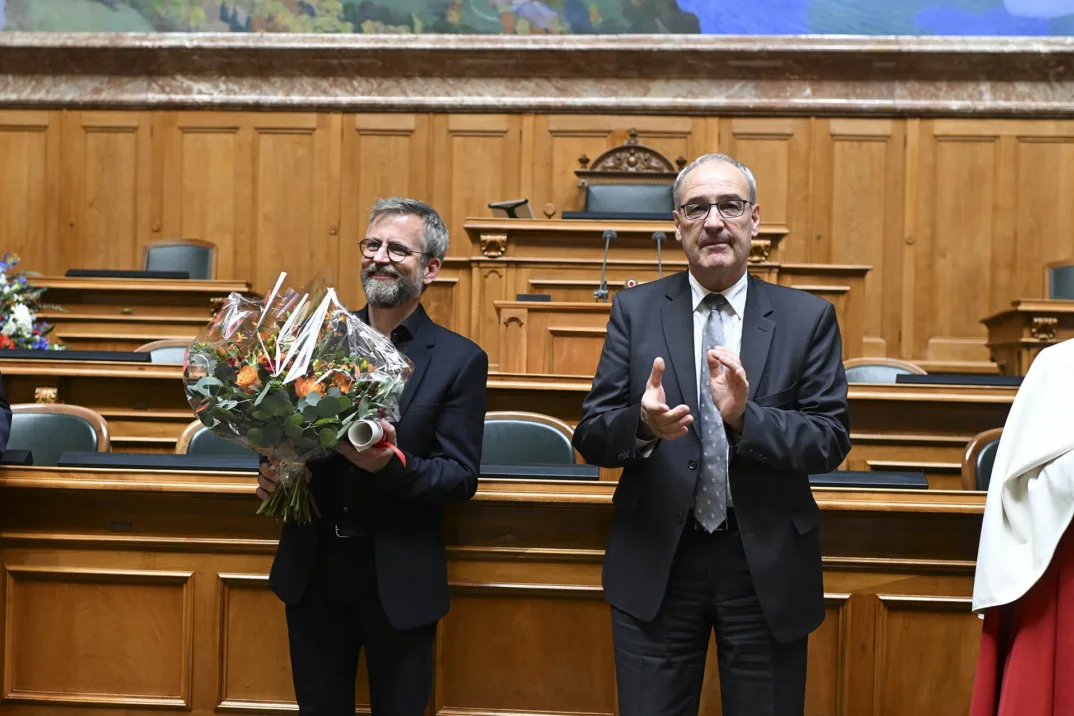
Inclusive language: the gateway to greater equality
Pascal Gygax examines also other languages and works with scientists in numerous countries. Observing our 21st century communities to be still very patriarchal, Pascal Gygax finally concludes: “We need to demasculinise society!” One of the tools he encourages people to use is inclusive language, currently the focus of some very heated debate. “Today, inclusive language is all about achieving a better balance between the representation of genders in language,” sums up Pascal Gygax. “And it goes well beyond the numerous contracted forms of spelling which create so much buzz and to which it is too often reduced.”
Language is alive and evolving
Pascal Gygax does not hesitate to play a popularising role, always with the intention of making his field of study accessible. He has created educational videos with the help of the EPFL, taken part in round-table discussions and radio and television shows, and written articles for the media.
Pascal Gygax has studied the links between language and gender representations for the past twenty years.
Gygax’ empirical work has not always enjoyed full support. The psycholinguist looks forward to using the sum that goes with the Marcel Benoist Swiss Science Prize to finally create the academic institute dedicated to the research on the impacts of language that he has dreamt of for years. Because society is not standing still. On the contrary: “Words like ‘lecteurice’ (a masculine and feminine fusion word) are beginning to appear to include non-binary people,” he says. “Far from being set in stone, the French language, as other languages, needs to breathe. It is evolving. It is alive.”
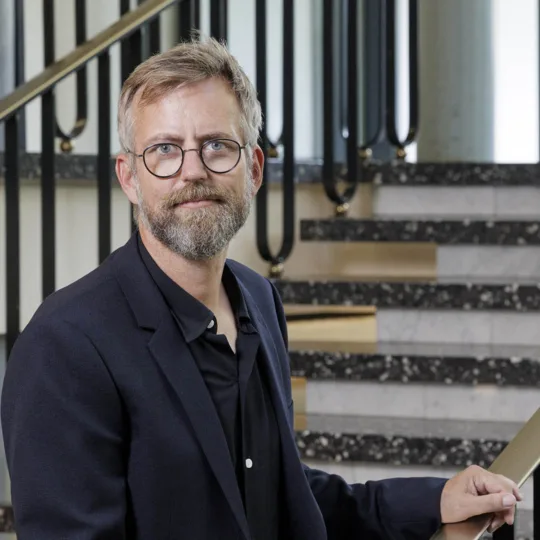
Pascal Gygax, born in Biel in 1975, studied psychology and psycholinguistics in England. In 2003, he returned to Switzerland and continued his research at the University of Fribourg. The main focus of his research is the impact of language on our perception of the world. In November 2024, he was awarded the Marcel Benoist Swiss Science Prize, often considered the Swiss equivalent of the Nobel Prize.
